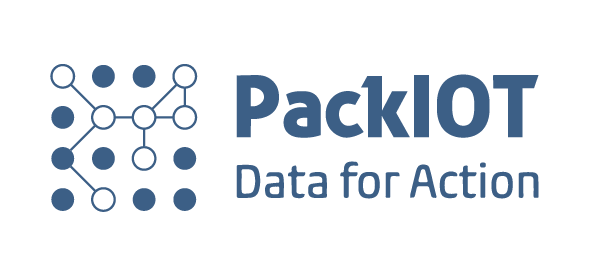A worldwide survey by KPMG carried out in partnership with Forbes, entitled”Digital Transformation”, pointed out that 79% of 261 CFOs had already started the digital transformation procedure in the companies they lead. The poll also showed that this movement has opened the way for the introduction of more advanced emerging technology such as large data, computer vision, and machine learning. These capacities can provide information and help companies respond more efficiently to business fluctuations. The intelligent automation provides professionals with the essential information-gathering tools for decision making and enables them to concentrate more on approach.
“What we’ve seen, lately, is that this procedure has also been intensified in the finance function in the other organizations due to the urgent need for automation which has arisen in the face of the challenges imposed by the social distancing determined as a health measure to fight Covid-19“, points KPMG.
In our daily dealings with factories in a variety of areas of the planet, we’ve seen many fund managers who are more open to electronic transformation. The covid-19 pandemic has accelerated this process, sometimes in a tumultuous manner. But we believe it is a road with no turning back. Contracts are already beign digitally signed, documents have blockchain validations, and many professionals have mastered BI and data analysis tools.
Company Culture: The Force Behind Digital Transformation
How can professionals pull the trigger for digital transformation?
Amid globalization and advances in technology, little and medium-sized businesses are employing electronic tools to improve their competitiveness and sustainability to create new sources of value. In fact, from EY‘s study with SMEs in Southeast Asia, some 370 SME executives recognized that their companies’ priorities would be to improve customer service and leverage electronic technology.
Finance is among the hearts of the enterprise. Whether it’s based on the accounting/financial/economic/taxation dynamics or an area that also encompasses operations, these specialists can be the key link that drives the plant towards electronic transformation.
And what opportunities CFOs, financial managers, and analysts needs to take advantage to make a difference regarding electronic transformation?
- Promoting reduced paper use in factories
- Encouraging cost reduction through electronic tools in production (measuring, the electronic signature of contracts, etc)
- By boosting the utilization of cloud calculating to streamline various processes in the Business
- Making decisions based on information analysis tools
- Demanding from their peers and subordinates that they also bring in info based on reliable data
And professionals are in the middle of all of it. Today’s CFO is no longer the same as 20 years ago. You’ve to move ahead with the many changes which are happening.
You have to start this new state of mind path yourself. When was the last time you tried something new? When did you attend an online event to see a brand new solution? Or at the day-to-day life of your plant, whenever you suggested a very simple measure be taken?
For everyone who is not participating in the waves of revolution, there’s the feeling of needing to defend their job “keep things the way they are.” People who defend the status quo don’t know that by not helping the company to move into the future, they can cause it to cease to exist in a couple of years. It is ironic, after all! Innovation is not the enemy. The enemy is standing still. That is what might make you lose your job.
The 5 Steps To Bring Industry 4.0 Into Your Factory

Finance 2025: Digital transformation in finance. Eight predictions about digital technology for CFOs, by Deloitte
You can find the full research here.
1. The finance factory: Transactions will be touchless as automation and blockchain reach deeper into finance operations.
2. The role of finance: With operations automated, finance will double down on business insights and service. Success is not assured.
3. Finance cycles: Finance goes real-time. Periodic reporting will no longer drive operations and decisions—if it ever did.
4. Self-service: Self-service will become the norm. Finance will be uneasy about this.
5. Operating models: New service delivery models will emerge as robots and algorithms join a more diverse finance workforce—think about the integration of freelancers, gig workers, and crowds.
6. Enterprise resource planning: Finance applications and microservices will challenge traditional ERP. Big vendors will be prepared.
7. Data: The proliferation of APIs will drive data standardization, but it won’t be enough. Many companies will still be struggling to clean up their data messes.
8. Workforce & workplace: Employees will be doing new things in new ways, some of which will make CFOs uncomfortable.
CFO 4.0 – key skills
Essential competencies for CFO 4.0. Numerous research has already identified the function of the production CFO is basically changing. The new strain of CFOs – CFO 4.0 – are currently playing an increasingly enabling role as an advisor, enabler, and operator. They concentrate on supporting three major objectives achievable through electronic transformation:
Revenue growth.
Profitability enhancement.
Operational excellence.
CFO 4.0 is the creator of a growing number of leads indications for the company, and also the master of measurability, according to one poll of manufacturers – with priorities, including connecting workflow and production processes moderate to long term thinking in order to anchor the digitization schedule throughout the board and better transparency and greater control through digitalization’.
How, then, does attaining such goals translate into the key set of competencies for CFO 4.0? Siemens’s research respondents were able to identify five main capabilities that describe CFO 4.0:
- A comprehensive understanding of the available funding options that may allow a commercially sustainable transition to Business 4.0.
- Expert assessment of funding options early in the strategic steps towards Business 4.0 in order to get and take benefit of the range of potential renewable digital/automated technology solutions.
- Accurate assessment of digitalization chance versus digitalization risk, through knowledge of financial, technology, operational, and market problems.
- The competency to make new business models for Business 4.0, the ability to construct a rationale for an ROI, and the ability to implement predictive models, supported by meaningful measurement/monitoring and reporting.
- The proficiency to make an efficient phased plan to operationalize the business’s move to Business 4.0.




